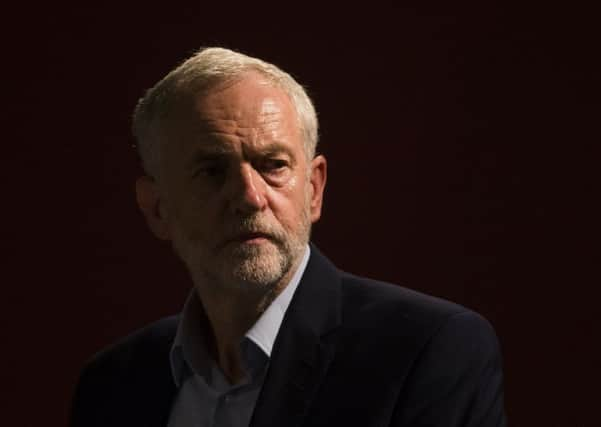Jeremy Corbyn vows to boost trade unions as Labour ballot papers sent out


The first ballot papers go out to the estimated 640,000 members and supporters who will decide whether Mr Corbyn carries on as leader or is replaced by his challenger Owen Smith.
With many expected to cast their votes in the coming days, it could be a vital week in the contest - even though polling does not close until September 21.
Advertisement
Hide AdAdvertisement
Hide AdMr Corbyn has pledged to introduce new “collective and individual” rights in the workplace if he succeeded in becoming prime minister.
Measures would include mandatory collective bargaining in firms with more than 250 employees, the election of staff representatives to executive remuneration committees, and the introduction of “sectoral union bargaining rights”.
The proposals appeared designed to strengthen his support among his powerbase of grassroots activists who swept him to the leadership in last year’s contest and who make him the clear favourite to win again this time round.
Mr Smith did receive a major boost over the weekend with London mayor Sadiq Khan urging Labour members to ditch Mr Corbyn and support the former work and pensions secretary.
Advertisement
Hide AdAdvertisement
Hide AdIn a scathing attack, Mr Khan said the Labour leader had lost the confidence of his MPs, failed to gain the trust and respect of the voters and was “extremely unlikely” to win a general election.
The Corbyn camp described his comments as “disappointing” saying Mr Khan had won the mayoralty standing on a Labour platform under Mr Corbyn’s leadership - even though he largely kept his distance from Mr Corbyn during the campaign.
There were jeers and boos when the London’ mayor’s name was mentioned at a mass rally of Mr Corbyn’s supporters in Kilburn, north London, on Sunday evening.
The Labour leader said his changes to trade union rights would form part of a wider package of reforms to “democratise our country from the ground up” and give people a “real say” in their workplaces and communities.
Advertisement
Hide AdAdvertisement
Hide Ad“We need to break open the closed circle of Westminster and Whitehall, and of the boardrooms too,” he said.
“Decisions in Britain are overwhelmingly taken from the top down. And that’s crucial to why our country is run in the interests of a privileged few.
“Labour under my leadership will listen to ideas from the bottom up - and take radical action to transform and rebuild our country so that no one and no community is left behind.”
In other measures, Mr Corbyn promised a “radical devolution of power” from Whitehall to local councils, regions, and the devolved administrations, the replacement of the House of Lords with an elected second chamber, as well as new “citizens’ assemblies”.
Advertisement
Hide AdAdvertisement
Hide AdPeople would be given a greater say in their local communities through “democratic participation in budgeting, online democracy and control of local service” with a “citizens’ right to challenge” the privatisation or outsourcing of services through referendums.
Mr Corbyn also pledged to make the Labour a “truly democratic and pluralist organisation” in which members and affiliated organisations had “real control” while widening the representation on the ruling to reflect “the huge increase in party membership”.
Meanwhile, the Scottish Labour Party leader Kezia Dugdale has joined a growing number of prominent members to back Mr Smith for the leadership.
Writing in the Daily Record, she said: “Owen Smith gets my vote. I believe he can unite our party and move us on from the divisions that exist under the current leadership of Jeremy Corbyn.
Advertisement
Hide AdAdvertisement
Hide Ad“Owen understands that to have a chance of implementing Labour values, we need to win over some of those who didn’t vote for us at the last election.
“We can’t pin our hopes on a leadership who speak only to the converted, rather than speaking to the country as a whole.”
She added: “I don’t think Jeremy can unite our party and lead us into government. He cannot appeal to a broad enough section of voters to win an election.
“I believe Owen can.”